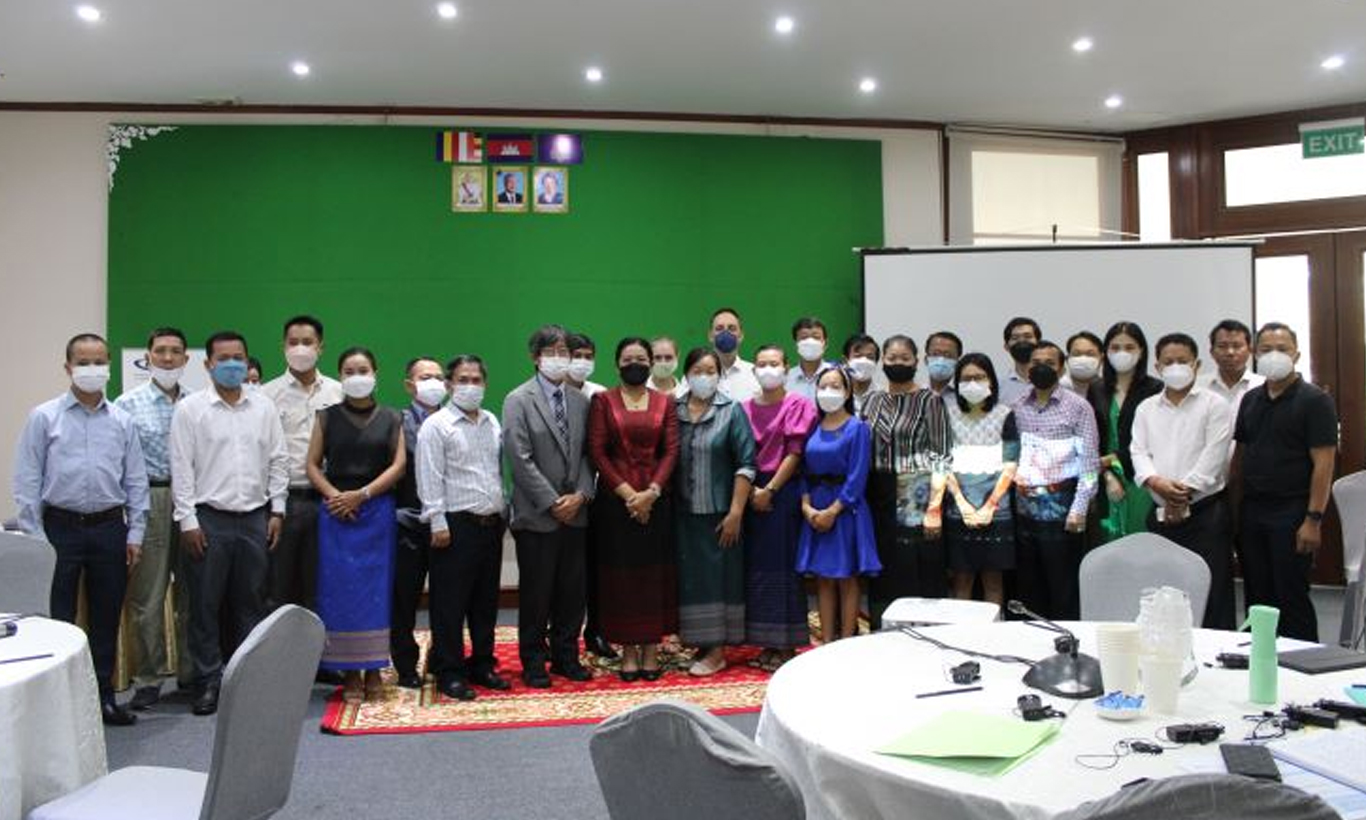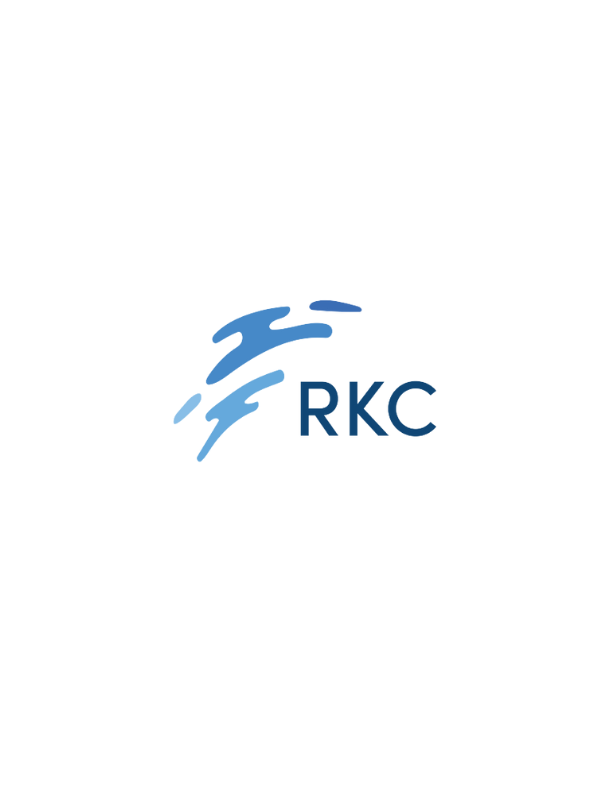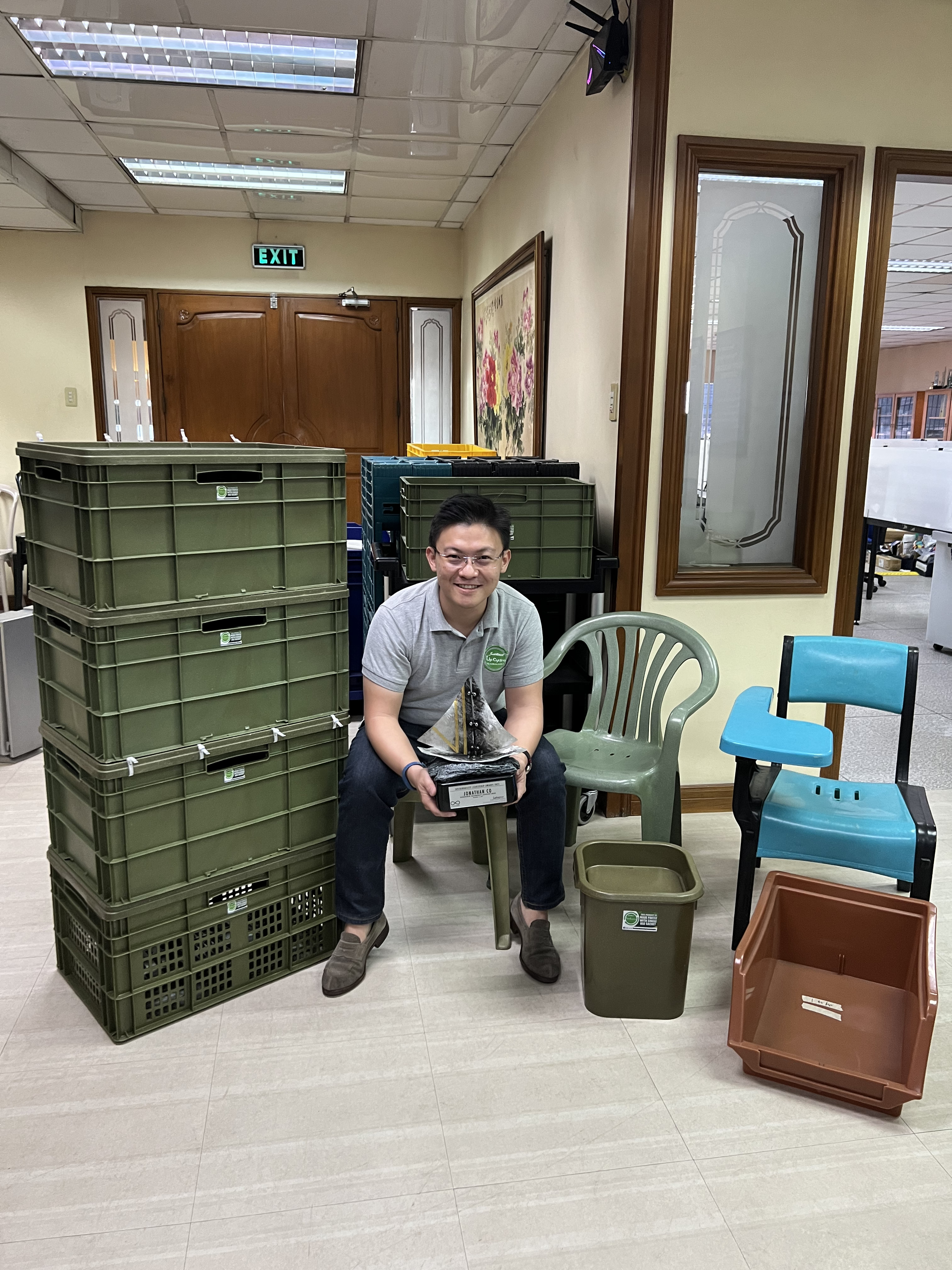

5 August 2022: ERIA and Cambodia's Ministry of Environment co-organised the hybrid seminar Plastic Waste Management – Future Opportunities and Private Sector’s Good Practices in Cambodia, to highlight the important role of the private sector and share lessons learned on plastic waste management in the country.
Dr Aladdin D Rillo, ERIA Senior Economic Advisor, in his welcoming remarks acknowledged the private sector as an important stakeholder that induces consumer behaviour change to reduce plastic waste, and introduces innovations on plastic waste management and sustainable production and consumption.
‘Our goal is to change the linear way we have been managing plastic across its life cycle and nudge it toward a more circular production and consumption’, he said.
H E Ngin Lina, Deputy Director General of General Directorate of Policy and Strategy of Cambodia's Ministry of Environment, in her opening remarks spoke of the challenges the private sector faces in the implementation of upcoming policies, especially the Circular Economy Strategy and the Action Plan and Sustainable Consumption and Production Roadmap.
‘The private sector might experience a lack of capacity, influential leadership, harmonious partnerships, interlinkages among different goals and targets, as well as methods to monitor and evaluate progress,’ she said.
Public Sector Intervention
Mr Taing Meng Eang, Director of Department of Green Economy of Cambodia's Ministry of Environment, moderated the first session which highlighted updates and ways forward from the government sector’s point of view.
Dr Keo Vanthoueun, Deputy Director of Department of Green Economy of Cambodia's Ministry of Environment, emphasised the importance of circular economy implementation in Cambodia, with reference to the Circular Economy Strategy and Action Plan launched in June 2021, whose implementation faces significant challenges.
‘Circular economy is a new concept in Cambodia which is not easy to implement, especially considering the absence of relevant policies and guidelines which align with the recycling business,’ he said.
Also read: Dr Keo Vanthoueun’s presentation
Dr Mongtoeun Yim, Deputy Head of Environmental Science Department of the Royal University of Phnom Penh, elaborated on the challenges, citing the excessive use of single-use plastic bags in Cambodia which are free of charge, leading to irresponsible consumption and disposal.
‘All kinds of waste are mixed and disposed at landfills, without any treatment or recycling. Plastic bags, which are often made up of more than one type of polymer, are very difficult and costly to recycle compared to other materials like glass, aluminium, or paper,’ he said.
Also read: Dr Mongtoeun Yim’s presentation
In the first discussion session, Dr Vanthoueun shared the government’s concern on societal acceptance when deciding on a policy – good policies should align with society’s willingness to comply.
Dr Yim added that a ban on plastic bags could only be mandated after viable alternatives had been introduced in the market. These alternatives are currently under development, so a ban should be applied gradually. Educating society takes time, but is crucial.
Private Sector Intervention
Ms Ellen Putri Edita, ERIA Research Associate, led the second session on private sector intervention to reduce plastic waste in the country. Ms Hak Chansy, Administration and Education General Manager of AEON Cambodia, said the company is producing several types of eco bags and eco products to support plastic reduction efforts. AEON Cambodia is also teaming up with Gomi Recycle 110 from Japan to collect and recycle plastic waste.
Also read: Ms Hak Chansy’s presentation
Ms Saruom Ran, Business Service Manager of GAEA Waste Management, spoke of the company's work in Siem Reap and Phnom Penh, including the establishment of a garage transfer and sorting station, and the organisation of an annual national campaign and awareness raising programme.
Also read: Ms Saruom Ran’s presentation
Mr Chris Parker, ClimeCo Plastic Programme Director, spoke of a plastic credit programme in Cambodia and Viet Nam run by TONTOTON, which facilitates companies to provide funding to plastic waste reduction efforts to address their plastic footprints. So far, 14,640 people have been positively impacted by the programme.
‘The plastic credit mechanism provides a structure for a verified credited mechanism in a very transparent and accountable way,’ he said.
Also read: Mr Chris Parker’s presentation
Mr Jef Moons, Founder and CEO of Knai Bang Chatt, said his company's sustainability practices are rooted in: understanding, create, matter, and grow. He said Knai Bang Chatt is performing sustainability driven skills and leadership programmes that focus on the circular economy, corporate social responsibility (CSR) and sustainable operational management, green audits and certification programmes, and environmental stewardship.
Also read: Mr Jef Moons’ presentation
Mr Michikazu Kojima, ERIA Senior Advisor, shared his insights on waste management in Cambodia based on his own observations in the field. He said the country does not have sufficient waste collection, waste management infrastructure, and data on waste, and Cambodia is also highly dependent on informal waste pickers. He highlighted good practices the country can adopt, including regional waste management schemes, design for recycling, extended producer responsibility (EPR), and waste collection and monitoring.
Also read: Mr Michikazu Kojima’s presentation
Mr Parker said that good engagement to reduce plastic waste between the public and private sectors can be built by creating a good business environment through empowering consumers and related stakeholders to capture plastic waste before it becomes pollution. Ms Chansy added that AEON also works with relevant ministries and governments, including organising workshops to discuss their activities with relevant partners .
Mr Moons also highlighted the problem of waste management in rural areas.
‘Start with yourself. It is all about the education. It is important for the public and private sector to look for synergy. It is not about the individual, but how we can best work together to achieve the positive results,’ he said.
Mr Kojima emphasised the importance of dialogue between the government and the private sector.
‘The government should also hear the requests from the industries since the they are one of the important stakeholders to reduce plastic waste,’ he said.
H E Lina closed the event saying that the information gathered during the event will be beneficial for policymaking as well as future strategy and research development. Going forward, she said, Cambodia will focus on the enhancement of domestic recycling technology to avoid high transportation costs due to the export of waste to neighbouring countries; development of policy guidelines and strategy through the plastic roadmap; and research on alternatives to replace single-use plastic products.
5 August 2022: ERIA and Cambodia's Ministry of Environment co-organised the hybrid seminar Plastic Waste Management – Future Opportunities and Private Sector’s Good Practices in Cambodia, to highlight the important role of the private sector and share lessons learned on plastic waste management in the country.
Dr Aladdin D Rillo, ERIA Senior Economic Advisor, in his welcoming remarks acknowledged the private sector as an important stakeholder that induces consumer behaviour change to reduce plastic waste, and introduces innovations on plastic waste management and sustainable production and consumption.
‘Our goal is to change the linear way we have been managing plastic across its life cycle and nudge it toward a more circular production and consumption’, he said.
H E Ngin Lina, Deputy Director General of General Directorate of Policy and Strategy of Cambodia's Ministry of Environment, in her opening remarks spoke of the challenges the private sector faces in the implementation of upcoming policies, especially the Circular Economy Strategy and the Action Plan and Sustainable Consumption and Production Roadmap.
‘The private sector might experience a lack of capacity, influential leadership, harmonious partnerships, interlinkages among different goals and targets, as well as methods to monitor and evaluate progress,’ she said.
Public Sector Intervention
Mr Taing Meng Eang, Director of Department of Green Economy of Cambodia's Ministry of Environment, moderated the first session which highlighted updates and ways forward from the government sector’s point of view.
Dr Keo Vanthoueun, Deputy Director of Department of Green Economy of Cambodia's Ministry of Environment, emphasised the importance of circular economy implementation in Cambodia, with reference to the Circular Economy Strategy and Action Plan launched in June 2021, whose implementation faces significant challenges.
‘Circular economy is a new concept in Cambodia which is not easy to implement, especially considering the absence of relevant policies and guidelines which align with the recycling business,’ he said.
Also read: Dr Keo Vanthoueun’s presentation
Dr Mongtoeun Yim, Deputy Head of Environmental Science Department of the Royal University of Phnom Penh, elaborated on the challenges, citing the excessive use of single-use plastic bags in Cambodia which are free of charge, leading to irresponsible consumption and disposal.
‘All kinds of waste are mixed and disposed at landfills, without any treatment or recycling. Plastic bags, which are often made up of more than one type of polymer, are very difficult and costly to recycle compared to other materials like glass, aluminium, or paper,’ he said.
Also read: Dr Mongtoeun Yim’s presentation
In the first discussion session, Dr Vanthoueun shared the government’s concern on societal acceptance when deciding on a policy – good policies should align with society’s willingness to comply.
Dr Yim added that a ban on plastic bags could only be mandated after viable alternatives had been introduced in the market. These alternatives are currently under development, so a ban should be applied gradually. Educating society takes time, but is crucial.
Private Sector Intervention
Ms Ellen Putri Edita, ERIA Research Associate, led the second session on private sector intervention to reduce plastic waste in the country. Ms Hak Chansy, Administration and Education General Manager of AEON Cambodia, said the company is producing several types of eco bags and eco products to support plastic reduction efforts. AEON Cambodia is also teaming up with Gomi Recycle 110 from Japan to collect and recycle plastic waste.
Also read: Ms Hak Chansy’s presentation
Ms Saruom Ran, Business Service Manager of GAEA Waste Management, spoke of the company's work in Siem Reap and Phnom Penh, including the establishment of a garage transfer and sorting station, and the organisation of an annual national campaign and awareness raising programme.
Also read: Ms Saruom Ran’s presentation
Mr Chris Parker, ClimeCo Plastic Programme Director, spoke of a plastic credit programme in Cambodia and Viet Nam run by TONTOTON, which facilitates companies to provide funding to plastic waste reduction efforts to address their plastic footprints. So far, 14,640 people have been positively impacted by the programme.
‘The plastic credit mechanism provides a structure for a verified credited mechanism in a very transparent and accountable way,’ he said.
Also read: Mr Chris Parker’s presentation
Mr Jef Moons, Founder and CEO of Knai Bang Chatt, said his company's sustainability practices are rooted in: understanding, create, matter, and grow. He said Knai Bang Chatt is performing sustainability driven skills and leadership programmes that focus on the circular economy, corporate social responsibility (CSR) and sustainable operational management, green audits and certification programmes, and environmental stewardship.
Also read: Mr Jef Moons’ presentation
Mr Michikazu Kojima, ERIA Senior Advisor, shared his insights on waste management in Cambodia based on his own observations in the field. He said the country does not have sufficient waste collection, waste management infrastructure, and data on waste, and Cambodia is also highly dependent on informal waste pickers. He highlighted good practices the country can adopt, including regional waste management schemes, design for recycling, extended producer responsibility (EPR), and waste collection and monitoring.
Also read: Mr Michikazu Kojima’s presentation
Mr Parker said that good engagement to reduce plastic waste between the public and private sectors can be built by creating a good business environment through empowering consumers and related stakeholders to capture plastic waste before it becomes pollution. Ms Chansy added that AEON also works with relevant ministries and governments, including organising workshops to discuss their activities with relevant partners .
Mr Moons also highlighted the problem of waste management in rural areas.
‘Start with yourself. It is all about the education. It is important for the public and private sector to look for synergy. It is not about the individual, but how we can best work together to achieve the positive results,’ he said.
Mr Kojima emphasised the importance of dialogue between the government and the private sector.
‘The government should also hear the requests from the industries since the they are one of the important stakeholders to reduce plastic waste,’ he said.
H E Lina closed the event saying that the information gathered during the event will be beneficial for policymaking as well as future strategy and research development. Going forward, she said, Cambodia will focus on the enhancement of domestic recycling technology to avoid high transportation costs due to the export of waste to neighbouring countries; development of policy guidelines and strategy through the plastic roadmap; and research on alternatives to replace single-use plastic products.

Communication Desk


